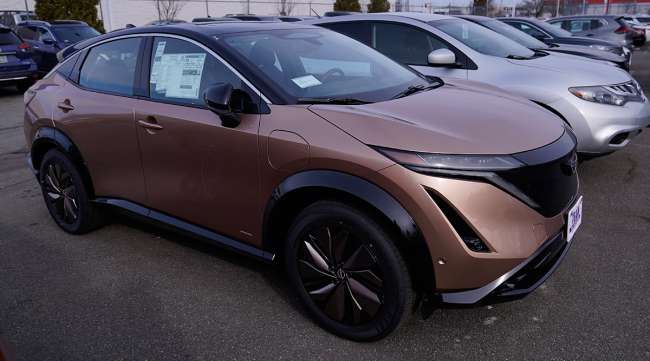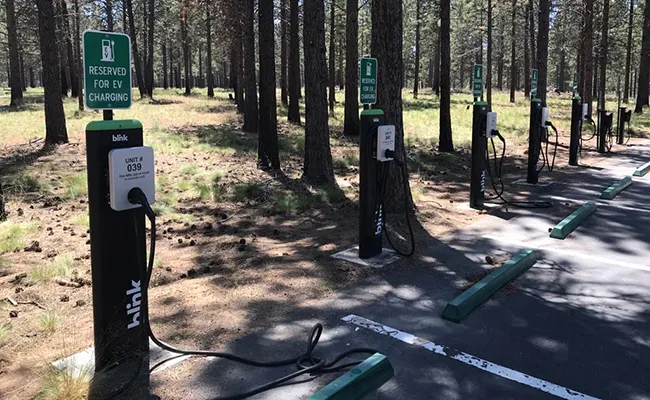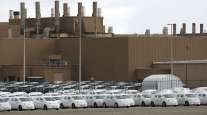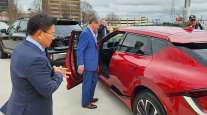EV Auto Sales Growth Slows

[Stay on top of transportation news: Get TTNews in your inbox.]
Electric vehicle sales growth, while still brisk, has begun to slow in the U.S. as inventory of battery-powered models piles up on dealer lots.
Sales of plug-in models grew by nearly 50% in the first half of the year, according to data from researcher Motor Intelligence. That’s less than the 65% growth rate for all of 2022 and well off the 71% gain in the first half of last year over the same period in 2021.
The slower pace comes as the supply of EVs on dealer lots ballooned to 92 days in June, well above the 51 days of inventory for all models, according to researcher Cox Automotive. That may help explain why only 31% of dealers see EVs as the future, while 53% of car buyers do, according to a survey Cox conducted.
“Dealers, staring at almost 100 days supply, perhaps are a bit more realistic,” Mark Schirmer, a Cox spokesman, said July 6 in an email. “The extra inventory is making some dealers a bit concerned.”
Automakers are pouring $200 billion into constructing nearly 100 EV assembly and battery plants in the U.S. in the biggest buildup since the industry was founded more than a century ago, according to consultant KPMG. Consumer acceptance in the U.S. has been slower than in China and Europe, as American car buyers have balked at high prices and spotty charging infrastructure.

A row of Blink charging stations sit unused at the High Desert Museum in Bend, Ore. (Gary Kicinski/Transport Topics)
But legacy and startup automakers are betting their futures on catching up with Tesla Inc., which generates profit margins twice the going rate in the industry while controlling 60% of the U.S. EV market. Wall Street is skeptical of EV growth ambitions such as Ford Motor Co.’s plan to boost output of battery-powered models by more than 15-fold to 2 million vehicles a year by the end of 2026.
Equity researcher CFRA lowered its rating on Ford to “hold” from “buy” July 6 after the automaker reported a 2.8% decline in EV sales in the second quarter. CFRA cited “sluggish” growth for Ford’s F-150 Lightning plug-in pickup, which saw sales rise just 4% from the first quarter to the second.
“We think EV production ramp-up issues are likely to be widespread among traditional automakers as they attempt to execute aggressive growth plans,” Garrett Nelson, a senior analyst for CFRA, wrote in a note.
Want more news? Listen to today's daily briefing below or go here for more info:




